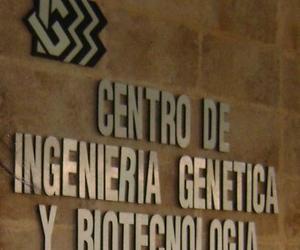Once again awarded quality certification by IGBC
- Submitted by: Luis Manuel Mazorra
- Science and Technology
- 03 / 10 / 2012

For the second time the Center for Genetic Engineering and Biotechnology (ICGEB) in Havana is awarded the international quality certification ISO 9001-2008.
During the closing ceremony of the event Biotechnology Havana 2008 - organized by the IGBC-handed this condition, valid for three years the National Office (from Cuba) Standardization (NSB) and the Spanish Agency for Standardization (AENOR).
She covers, said Agustin Irulagui engineer, head of the NSB certification, systems of quality management for all areas of research, development, production, and others.
The renewal of ISO 9001-2008, meanwhile said Martin Pita, General Manager of AENOR, is evidence that the IGBC is a center of national and international reference in terms of best practice, laboratory and production.
Evidence also added, to possess the organizational capacity necessary to meet the most complicated problems.
Today also received several awards granted by the IGBC and the Latin American Society of Pharmacology several outstanding works of Cuban researchers, including those made on the antitumor peptide CIGB 300 for cancers at different locations, which is currently undergoing clinical trials.
Moreover, on the final day of the event was presented an update of Phase III clinical trials of a therapeutic nasal Cuban vaccine against hepatitis B (NASVAC), which is tested in Cuba and Bangladesh.
According to Gerardo Guillén, director of biomedical research on the IGBC, that product is a first overall in the world because there is nothing similar to that disease.
Such a vaccine, he said, has shown in a sustained response phase III superior-to five-times to any product that is currently used in the treatment of hepatitis B.
These results are very impressive and encouraging, commented Professor Marie-Louise Michel, Department of Virology, Pasteur Institute of France.
The Biotechnology Havana 2012 attended, according to organizers, some 600 delegates from 41 nations, including prominent figures such as Professor Peter Agre, Nobel Prize in Chemistry 2003 for his discovery of aquaporins (cellular transmembrane proteins that allow water to pass .)
Agre, who now dedicates his work to study and combat malaria, highlighted the benefit to U.S. science and Cuba would bring academic exchange fluid.
Here I am to know what made Cuba to eliminate malaria in the country, which is a result of the Revolution.
That achievement, he said, is not tied to high technology, but was very effective I would like to know.
In it he said, have much to learn from the Cubans.
Comments